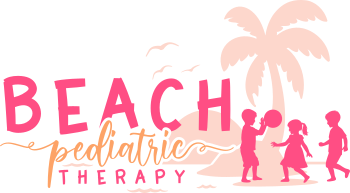Occupational Therapy Services
Evaluations
A comprehensive, standardized assessment designed to identify your child's strengths, weaknesses, and specific needs in areas such as fine motor skills, sensory processing, cognitive abilities, and daily living skills.
The evaluation process typically involves:
Parent or caregiver interview: Gathering information about the child's development, concerns, and daily routines.
Observation: Observing the child's play, motor skills, and interactions with others.
Standardized assessments: Using age-appropriate tests to evaluate specific areas of development, such as fine motor skills, sensory processing, and cognitive abilities.
Analysis and interpretation: Reviewing the collected data to identify areas of concern and develop individualized treatment goals.
Occupational Therapy
Warm-up activities: Starting with fun activities like playing with sensory toys, engaging in pretend play, or practicing simple motor skills to help the child relax and focus.
Targeted therapy activities: Introducing activities that address specific areas of concern, such as fine motor skills, sensory processing, or cognitive abilities. This might involve practicing handwriting, playing games that improve problem-solving skills, or using sensory tools to help regulate sensory input.
Functional activities: Incorporating activities that mimic real-life tasks, such as getting dressed, brushing teeth, or preparing snacks. This helps the child generalize skills learned in therapy to everyday situations.
Social and emotional skills: Promoting positive interactions with others, self-regulation, and emotional management through activities like cooperative play, role-playing, or discussing feelings.
Family/Caregiver Involvement: Providing suggestions for activities that can be practiced at home to reinforce skills learned in therapy and promote ongoing progress.
Throughout the session, the occupational therapist will observe the child's progress, provide guidance and support, and adjust activities as needed to ensure they are engaging, challenging, and meaningful.
Fine Motor
Fine Motor is the ability to use small muscles in the hands and fingers to perform precise movements. These skills are essential for tasks like writing, drawing, buttoning clothes, using utensils, and playing with small objects.
Sensory Integration
Sensory Integration is a therapeutic approach that helps children with sensory processing disorders (SPD) to better process and respond to sensory information from their environment. Children with SPD may have difficulty regulating their senses, which can lead to challenges in daily activities, social interactions, and emotional well being.
Self-Help & Life Skills
Self Help skills are the ability to perform activities of daily living (ADLs) independently. These skills are essential for children to develop a sense of autonomy and participate fully in their daily lives. These skills include activities like grooming, getting dressed, feeding, and toileting.



